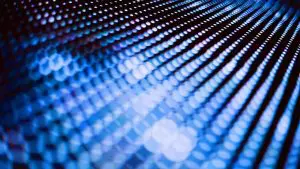(May 18, 2016) Researchers at Lockheed Martin are further exploring the idea of microspraying hot integrated circuits (ICs) to cool their thermal resistance problem. EETimes.com reported, “The efforts are focused on gallium-nitride (GaN) power amplifiers and associated monolithic microwave ICs (MMICs) which are increasingly used in RF designs. GaN offer many operating … [Read more...]
New Type of Graphene Could Increase Processor Clock Speeds
(May 19, 2016) Recently, scientists from the Moscow Institute of Physics and Technology (MIPT), the Institute of Physics and Technology RAS, and Tohoku University (Japan), have developed a new type of graphene-based transistor, whose modeling demonstrates that it has ultralow power consumption compared with other similar transistor devices. The newly proposed design was for a … [Read more...]
Self-Healable Electronic Material That Can Help Prevent Overheating
(May 16, 2016) A new, more durable electronic material has recently been created to repair itself and heal all its functionality even after breaking several times. Phys.org detailed, “Self-healable materials are those that, after withstanding physical deformation such as being cut in half, naturally repair themselves with little to no external influence.” “Researchers have … [Read more...]
Laptops May Start Producing Far Less Heat
(May 10, 2016) Massachusetts Institute of Technology’s postdoc Cui-Zu Chang and his colleagues have been “working to create devices with components which have little [to no] resistance to the flow of electricity” in laptops, according to TechRadar.com. Topological insulators, or, “exceptionally thin materials with special properties, which let electrons flow freely across the … [Read more...]
New Availability of Data Matrix Codes (DMCs)
Rogers has announced that they can add data matrix codes (DMCs) to a wide range of metalized substrates, including direct-bonded-copper and active-metal-brazed substrates. The codes can be “text or numeric in form and encoded by code-reading camera systems” and “are written on metalized surfaces by means of a thin oxide layer formed by an optical laser system,” said the … [Read more...]
- « Previous Page
- 1
- …
- 23
- 24
- 25
- 26
- 27
- …
- 85
- Next Page »








